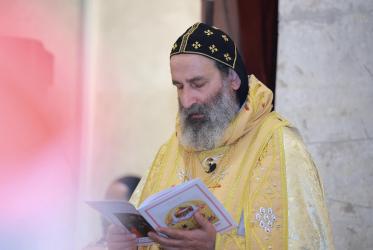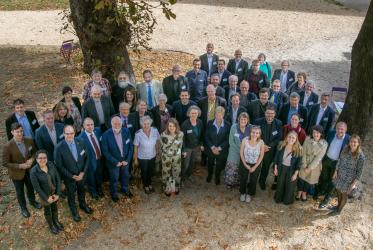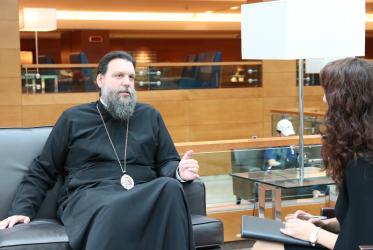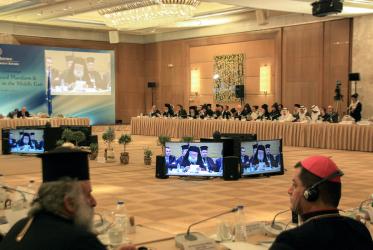Displaying 1 - 20 of 25
Rethinking Ecological Relationships in the Anthropocene era
11 - 13 February 2021
WCC well-represented in Religions for Peace leadership
07 October 2019
Fr Alexi - a peacemaker in Syria
21 December 2018
In Syria and Iraq, minorities must come out of the darkness
28 November 2016
Religion: Way of war or path to peace?
30 June 2016
WCC/UN conference calls for coordinated action on refugee crisis
20 January 2016
WCC Executive Committee works toward a future of peace and justice
19 November 2015
WCC strongly condemned terror attacks
14 November 2015
WCC more united in the pilgrimage of justice and peace
13 November 2015
International conference addresses challenges in the Middle East
22 October 2015
WCC urges responsibility for and support to the refugees in Europe
04 September 2015
New departure in Taizé towards an ecumenism of solidarity
20 August 2015














